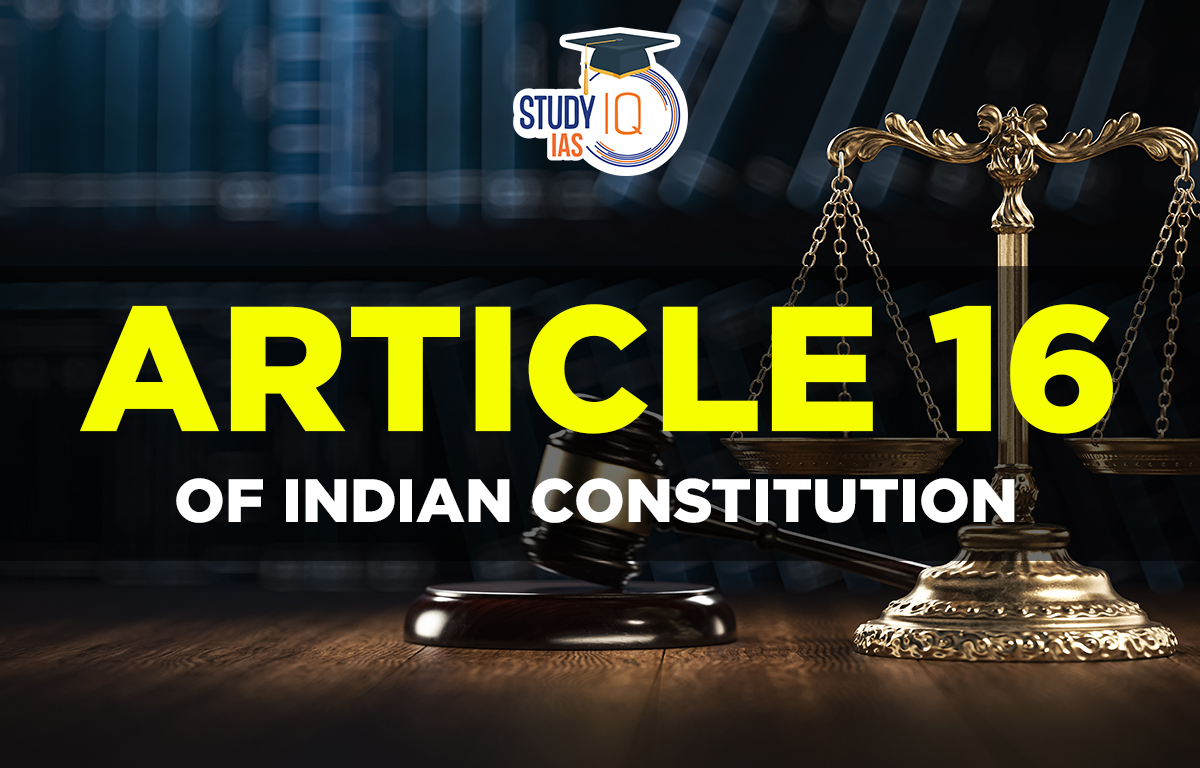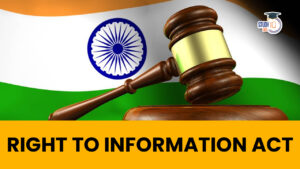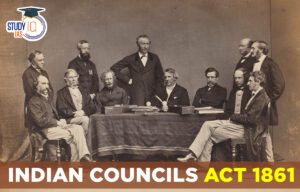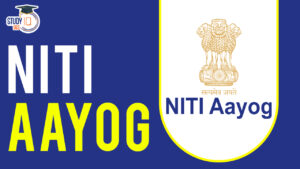Table of Contents
Article 16 of the Indian Constitution
Right to Equality is one of the basic fundamental rights that the Indian Constitution gives to all of its residents is the right to equality. The equality of opportunity in areas of public employment is covered under Article 16 of the Indian Constitution. The definition of the phrase “equal opportunity” varies, and there is no universal agreement on its exact meaning. A broad interpretation of this provision is provided by the Indian Constitution. Principles of Equal Employment Opportunity (EEO) are applicable to:
- Getting a job
- The working environment
- Relationship dynamics at work
- The process of assessing performance and
- The potential for career advancement and training
Equal opportunity in matters of appointment to State functions is what Article 16 promises. According to his or her credentials and capabilities, every citizen should be eligible for employment or appointment to any office under the State, according to the concept of equality of opportunity, as the Supreme court in its judgement of State of JK vs KNVT Kholo 1974 held.
Read More: Article 15 of Indian Constitution
Background of Article 16
This Article, originally drafted as Article 10, was debated on November 30, 1948, and became Article 16. It was added to the Constitution to ensure equal opportunity in government jobs and to prevent discrimination based on religion, race, caste, sex, birthplace, descent, or residence. The goal was to create a Sovereign Democratic Republic where all citizens are treated equally.
Article 16 allows for reservations in public employment for backward classes, aiming to uplift those who have faced historical discrimination. This reservation system is not about giving unfair advantages; it’s a form of positive discrimination designed to help marginalized groups.
Dr. B.R. Ambedkar included this provision in the Constitution to address the injustices faced by these communities. During the debates, there were three main views: one for complete equality without reservations, one for equality with reservations, and one recognizing the need for reservations to support historically excluded groups.
The term “backward class” was also discussed, with some wanting a broad definition and others preferring specific terms like “Scheduled Castes” and “Scheduled Tribes.” Ultimately, the Article was adopted with amendments, affirming the commitment to equality in public employment.
In summary, the reservation provision was included to combat historical prejudice and social injustices in India. It is an important part of the Constitution, promoting social justice, diversity, and fairness in public employment, even if it may seem unfair at times.
Article 16 of Indian Constitution Provisions
Article 16(1)
All citizens must have an equal chance to be hired or appointed to employment within the State, according to this clause. Only positions held on behalf of the state, such as employment or office, are subject to the limitation. i.e., the person in a position of power inside the state.
In light of this, the provision does not restrict the state from setting the appropriate standards for hiring into government positions, and the authority is free to set any further appointment requirements that would be beneficial in maintaining adequate discipline among the servants.
Consequently, the following are covered by the guarantee in clause (1): (a) initial appointments, (b) promotions, (c) termination of employment, and (d) issues pertaining to the wage, periodic increments, leave, gratuity, pension, age of superannuation, etc. The equal pay for equal effort principle is also covered in clause 16(1).
The experience of reservation in practice, as correctly noted by Justice V.R. Krishna Iyer, demonstrated in M Thomas v State of Kerala, 1976, that the benefits were largely taken by the top creamy layer of the backward classes or classes, keeping the weakest among the weak and leaving the fortunate layers to consume the entire cake. significantly lessened by the passage of time, greater educational standards, and more work options.
Read More: Article 14 of Indian Constitution
Article 16(2)
No citizen will be excluded from or subject to discrimination in connection with any employment or office under the State solely on the basis of religion, race, caste, sex, descent, place of birth, or domicile, or any combination of these factors. The phrase “any occupation or office under the State” makes it clear that only public employment is covered by Article 16(2).
In K.C. Vasanth Kumar v. State of Karnataka 1985, the Supreme Court ruled that the mean test should be the basis for any reservations made in favour of underprivileged groups (backward classes). It has also been suggested that the reservation policy be revisited approximately every five years to determine whether a class has advanced to the point where reservations are unnecessary. Its name ought to be removed from the group of backward classes.
In Indira Sawhney & Ors. v. Union of India, 1993, the Supreme Court
- Upheld the introduction of distinct reservations for other underprivileged groups in positions with the national government.
- Ordered to deny access to reservation services to the Creamy layer and other underprivileged classes.
- Restrict reservations to the 50% maximum as per order.
- Ruled against the validity of special reservations for forward castes who are economically disadvantaged.
Read More: Articles 12 and 13
Article 16 of Indian Constitution Exceptions
Article 16(3)
For specific jobs or appointments in a state, union territory, local authority, or other authority, Parliament may stipulate residency requirements. Hence, the parliament made a law Public Employment (Residence Requirements) Act, 1957, in which residence was made necessary for public employees in states like Andhra Pradesh, Manipur, Tripura, and Himachal Pradesh. At, present no such provision for any state stays except Andhra Pradesh and Telangana.
Supreme Court under M R Balaji v Mysore case 1963, put a 50% restriction on a reservation in nearly all states, with the exception of Tamil Nadu (69%, under the 9th schedule), and Rajasthan (68% quota, including 14% for advanced castes, post-Gujjar violence 2008). In 1980, Tamil Nadu went over the boundary.
Article 16(4)
The state may, if it so wishes, provide precedence for appointments or employment to any member of the underprivileged class in society.
In Devadasan v. Union of India, the Supreme Court examined the application of Article 16(4). In this instance, the “carry forward rule,” created by the government to control the appointment of people from underprivileged classes to government positions, was at play.
The “carry forward rule” was declared unconstitutional by the Supreme Court on the grounds that the government cannot use its power in such a way as to deny members of classes other than backward classes fair equality of opportunity in areas of public employment.
- Article 16(4A) provides for the reservation of seats in matters of ‘promotion’ with consequential seniority for Scheduled Castes and Scheduled Tribes.
- Article 16(4B) provides for carrying over of unfilled vacancies reserved for SC/ST to subsequent years, which is simply referred to as the “carry forward rule”.
Read about: Important Articles of Indian Constitution
Article 16(5)
A law can provide that the incumbent of an office related to a religious or denominational institution or a member of its governing body should belong to the particular religion or denomination. In simple words, a temple can make a rule that the priests must belong to the Hindu religion only or a mosque can ensure that the Imam must be someone who follows Islam. And these rules made by such institutions won’t be considered against Art. 16.
It is clear from this that Article 16(5) is a type of exception that prioritises Article 26 “Freedom to manage religion matters” over Article 16 “Equality of opportunity in the matter of public employment.”
Article 16(6)
A reserve of up to 10% of appointments or positions for any economically underprivileged groups of citizens may be made by the state. This additional reservation of up to 10% would be made in addition to the current one. The state would periodically notify the economically disadvantaged areas for this purpose based on family income and other economic disadvantage indicators.
Read More: Salient Features of Constitution of India
Evolution of Article 16 of the Indian Constitution
The Kalelkar Committee
After India’s independence in 1947, the government took steps to support Scheduled Castes and Scheduled Tribes, then called “Depressed Classes.” However, there was no official list of backward classes, which limited their benefits in education and employment. To address this, the first Backward Classes Commission was set up in 1953, led by Kaka Kalelkar. It identified backward groups but the government rejected its view that caste was key to defining backwardness, aiming instead for a casteless society.
The Mandal Commission Case
In the landmark case of Indra Sawhney vs. Union of India (1993), the Supreme Court examined Article 16(4).
Key Facts:
- In 1979, the second Backward Classes Commission, chaired by B.P. Mandal, was tasked with identifying socially and educationally backward classes and recommending job reservations.
- The Commission reported in 1980, identifying 3,743 castes and recommending 27% reservation for them.
- The Congress government delayed implementing this until 1989 when it issued an Office Memorandum (OM) for the reservations.
- This led to significant protests and legal challenges, resulting in a Supreme Court stay on the OM until the case was resolved.
Supreme Court Judgment:
A 6:3 majority upheld the 27% reservation for backward classes but required excluding the “creamy layer” (more advanced individuals) from these benefits. The court ruled that reservations should apply only to initial job appointments, not promotions, and should not exceed 50% overall. It clarified that backward classes could be defined by caste but emphasized that economic criteria alone were insufficient for classification.
77th Amendment Act (1995):
This amendment allowed reservations in promotions for Scheduled Castes (SCs) and Scheduled Tribes (STs) if the state deemed them underrepresented.
81st Amendment Act (2000):
This act removed the 50% cap on reservations for SCs/STs and Other Backward Classes (OBCs) in unfilled backlog vacancies from previous years.
85th Amendment Act (2001):
This amendment extended the reservation benefits for SCs/STs in promotions, including seniority.
Subsequent Supreme Court Rulings:
The Supreme Court upheld the amendments, stating they do not alter the fundamental structure of Article 16(4). In M. Nagaraj vs. Union of India (2007), it confirmed that the amendments allow reservations while maintaining overall efficiency. In Jarnail Singh vs. Lachhmi Narain Gupta (2018), the court ruled that the creamy layer principle also applies to SCs/STs, meaning reservations in promotions cannot be given to members of the creamy layer within these communities.
Article 15 vs Article 16
Difference Between Article 15 and Article 16 of the Indian Constitution
| Article 15 | Article 16 |
|
|
Advantages of Article 16 of the Constitution
Equality of Opportunity:
Article 16 ensures equal job opportunities in public employment, free from bias and discrimination. It aims to uplift disadvantaged groups.
Reservation for Backward Classes:
It provides reservations in jobs for underrepresented communities, helping them gain access to public employment and contribute to national progress.
Promotes Diversity:
The reservation system encourages diversity in public services, making them more responsive to the needs of all communities.
Social Justice:
Article 16 helps promote fairness by bridging gaps between different societal sections and distributing job opportunities more equitably.
Reduces Poverty:
By providing stable employment, it helps combat poverty and unemployment, ensuring a steady income for families.
Disadvantages of Article 16 of the Constitution
Reverse Discrimination:
The reservation system can disadvantage candidates from the general category, who may be equally qualified but miss out on opportunities.
Caste-based Divisions:
Reservations based on caste can reinforce divisions and emphasize caste over skills and qualifications.
Insufficient Representation:
Not all eligible individuals benefit from the reservation system, leading to inadequate representation for those who truly need it.
Inefficient Implementation:
The system can be misused, leading to corruption and inefficiency in how reservations are applied.
Reduced Merit-based Selection:
There can be a compromise on merit in hiring processes, resulting in the selection of less qualified candidates over more competent ones.
Article 16 of Indian Constitution UPSC
People in contemporary societies strongly accept the idea of “equality of opportunity.” When closely analyzed, equality of opportunity can be divided into numerous distinct principles, some of which are antagonistic rivals. There is debate over which of these values, if any, should be enforced through coercion. It’s usual to think of a community as desirable in and of itself if there is no discrimination based on presumed characteristics like race, ethnicity, religion, sex, or sexual orientation. Many people believe that the ideal always has greater strength than any possible justification.


 Right To Information Act, Objective, Fea...
Right To Information Act, Objective, Fea...
 Indian Councils Act 1861, History, Provi...
Indian Councils Act 1861, History, Provi...
 NITI Aayog Report on India’s Hand and ...
NITI Aayog Report on India’s Hand and ...





















